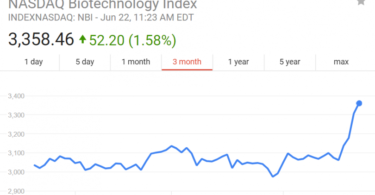With the first quarter of 2023 in the rearview mirror, investors are looking ahead. Many have been unnerved by the current economic environment of high inflation, rising interest rates, and geopolitical uncertainty — all of which have conspired to keep the Nasdaq Composite steadfastly in bear market territory, still down 25% from its peak.
Investors would do well to keep in mind that bear markets — as demoralizing as they can be — are a natural part of the economic cycle and represent the best opportunity for investors to buy quality companies at discounted prices. History also shows that every previous bear market has eventually ceded ground to a bull market, profiting investors who took advantage of the fire sale.
One bear-market bargain that looks particularly compelling is ad tech disruptor The Trade Desk (TTD). The stock is down roughly 45% from its peak in late 2021, but a closer look reveals a stock ready to soar.
Perpetuating change in the ad tech industry
There's a massive shift taking place in the stodgy advertising industry. Digital advertising has overtaken traditional marketing and is expected to represent 69 cents of every marketing dollar in 2023. The fastest-growing segment of the industry is programmatic advertising, which uses high-speed computers and sophisticated artificial intelligence (AI) algorithms to ensure that ads reach their intended market.
CEO Jeff Green is a programmatic advertising pioneer, having developed the world's first online advertising exchange — and he continues to lead the charge, disrupting the industry. The Trade Desk has bucked tradition, introducing transparent pricing and working with the world's largest ad agencies to facilitate change. The company's state-of-the-art ad platform has the ability to evaluate more than 9 million ad impressions and quadrillions of permutations every second.
Furthermore, in anticipation of the pending sunsetting of cookies and the growing spotlight on consumer privacy, The Trade Desk rolled out its Unified ID 2.0, which provides marketers with the data they need to target the right audience, without abusing personally identifiable information. Furthermore, the latest version of its system helps marketers pull in their own first-party data, further enhancing its industry-leading results.
The proof is in the pudding
The Trade Desk is running rings around the competition, but don't take my word for it — the results tell the tale.
In the fourth quarter, Alphabet‘s revenue grew just 1% year over year, while sales at Meta Platforms actually declined 4%. This continued a trend that persisted through 2022 as marketers cut back on advertising spending in the face of a deteriorating economy. At the same time, however, The Trade Desk's revenue jumped 24%, evidence that the company is stealing market share from its two largest rivals.
A growing list of industry accolades bear testament to its satisfied customer base. The Trade Desk was identified in Gartner‘s Peer Insights rankings as a 2022 Customer's Choice in Ad Tech, while Quadrant named it a Leader in its 2022 SPARK Matrix for Ad Tech Platforms — ranking The Trade Desk highest among customer impact and technology excellence.
In addition, the company was recognized as a leader in Forrester‘s Wave for business-to-business (B2B) advertising solutions, earning the highest score in cross-channel capabilities criterion and one of the best scores for innovation roadmap criterion.
The opportunity is vast
Advertising continues to shift from legacy channels to digital, and The Trade Desk sits at the crossroads of this important secular trend. While estimates vary, global digital advertising spending is expected to increase from $602 billion in 2022 to $876 billion by 2026, accounting for 74% of all ad spending, according to research compiled by Oberlo.
The Trade Desk generated revenue of $1.1 billion last year, which is a drop in the bucket compared to its missive opportunity. Global ad spending hit $808 billion in 2022 and is expected to surpass $1 trillion by 2026. This helps to illustrate the vast opportunity for The Trade Desk that remains.
To be clear, The Trade Desk has never been cheap when measured using traditional valuation metrics. The Trade Desk currently sells for roughly 13 times next year's sales, when most experts agree a reasonable price-to-sales ratio is between 1 and 2. However, valuation can't be viewed in a vacuum. The Trade Desk continues to steal market share and generate robust growth even in the face of economic tailwinds.
Add to that the company's disruptive technology, industry accolades, and significant opportunity, and you have the recipe for a stock poised for a massive rebound.
Originally published on Fool.com
Suzanne Frey, an executive at Alphabet, is a member of The Motley Fool's board of directors. Randi Zuckerberg, a former director of market development and spokeswoman for Facebook and sister to Meta Platforms CEO Mark Zuckerberg, is a member of The Motley Fool's board of directors. Danny Vena has positions in Alphabet, Meta Platforms, and Trade Desk. The Motley Fool has positions in and recommends Alphabet, Meta Platforms, and Trade Desk. The Motley Fool recommends Gartner. The Motley Fool has a disclosure policy.






